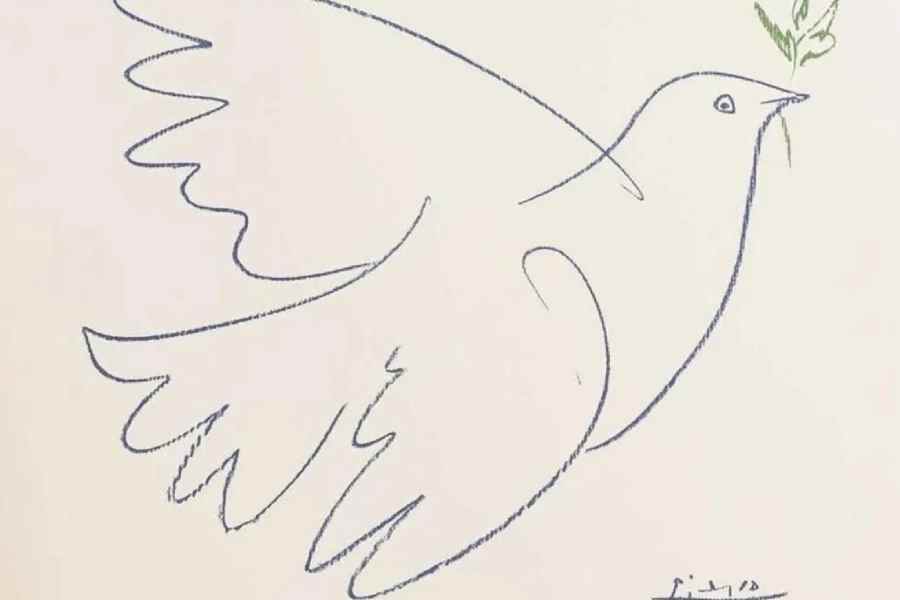In 1969, at Madison Square Garden in New York City, the legendary American singer, Johnny Cash, recalled speaking to a reporter upon his return from visiting American troops in Vietnam. The reporter said, “That makes you a hawk, doesn’t it?” Cash refuted, “If you watch the helicopters bring in the wounded boys, and then you go into the wards and sing for ’em and try and do your best to cheer ’em up, so they can get back home, it might make you a dove with claws.” The concept of such a khichuri-type of bird as a symbol of peace wasn’t inspired by mythology; nor was it a creation of Sukumar Roy, who excelled in fusing different animal forms in his poetry and prose. Cash, however, later called the metaphor “stupid,” pointing out that doves do, in fact, have claws. But it might work better, he thought, as an imaginative emblem, like a small bird with claws, ready to attack or protect when needed.
A dove is a sign of love, freedom, and peace. Interestingly, it can also serve as a political emblem. Usman Khawaja, the Australian cricketer, insisted on displaying a dove with an olive branch on his shoe for the Boxing Day Test in Perth in support of the plight of the people in Gaza. Incidentally, January 9 marks the 75th anniversary of Pablo Picasso’s Dove of Peace which carried deep symbolism for a post-World War II world. In addition to being an icon of the era, it was used to adorn a poster for the Paris Peace Congress in 1949. Significantly, a dove holding an olive branch — Khwaja’s chosen symbol of support for Palestinians — is also a positive symbol for Israel. After the biblical flood, Noah released a dove to search for land; the bird returned with a newly picked olive leaf, which is a symbol of life.
In political lexicon, ‘dovish’ refers to a preference for dialogue or other peaceful solutions over the use of force, whereas being ‘hawkish’ is associated with politicians or governments inclined to the use of force to accomplish their goals. At a time when wars and conflicts dominate the global discourse, these terms have gained renewed prominence. The American Journal of Political Science published a paper by Michaela Mattes and Jessica L.P. Weeks in 2019 titled “Hawks, Doves, and Peace: An Experimental Approach,” which examined whether or not “hawks possess a domestic political advantage at initiating rapprochement” and whether or not “hawks are in a better position to achieve peace.” Consider Israel’s past. The 1978 Camp David Accords were successfully negotiated by the former Israeli prime minister, Menachem Begin, who was known as a hawk; contrastingly, the former Israeli prime minister, Ehud Barak, a dove, was removed from office following his attempts to negotiate peace with the Palestinians at the 2000 Camp David Summit.
Returning to Johnny Cash’s legendary idea of a ‘dove with claws’. Was Cash’s concept radical? Could Cash be considered a man involved in the “war on war”, as the American band, Wilco, described it? Could there be the possibility of a ‘dovish peace’ on earth? Is Picasso’s depiction of the dove as a peace symbol overly idealistic given the prevalence of war and violence in today’s world? What happens if the dove gets fused with a hawk’s beak or claws? Will peace be easier to come by with a messenger avian like that?










